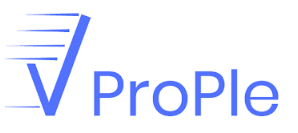This website use cookies to help you have a superior and more relevant browsing experience on the website.
Tag: interview services
Overcoming Talent Acquisition Challenges in GCC: Strategies for Success
Global Capability Centres (GCCs) are established by multinational corporations and they serve as hubs for innovation, efficiency and global collaboration. They are essential in modern business operations. From back end support to high value functions such as Artificial Intelligence (AI) and Machine Learning (ML), GCCs provide a wide range of services. That is why they […]
read moreRole of Interview as A Service Platform in Eliminating Biases in Interviewing
Interview as a service platforms are becoming increasingly popular among companies these days. The reason? Unconscious biases in the hiring process! Yes, you read that right. No one wants to admit it, but hiring managers and recruiters make a lot of hiring decisions out of biases. These decisions are not at all related to how […]
read moreVideo Interview Service: Why Is It Still Vital After Covid?
The rise in demand and popularity for remote work during the pandemic forced companies to use a video interview service to take online technical interviews and hire candidates remotely. The world spent almost two years in COVID-19 restrictions. As a result, both employees and employers somewhat got used to working from home. Not only this, […]
read moreHow to Master Data-Driven Recruiting
Over the years, recruiting has not been a data-driven process but has been based on chances, intuitions, and assumptions. The hiring experts didn’t have a solid method to depend on. But as the world moves ahead in this technological journey, there have been numerous tools popping up here and there. There is now enough software […]
read moreHow Is Interview As A Service Different From The Traditional Hiring Methods
How interview as a service add value to in hiring process As technology is emerging every day, so is the demand for effective, efficient, and exceptional services in every sector. In this era of specialization, the services that add value to your current process be it in any sector has tremendous value. Interview as a […]
read moreHow To Prepare For The Video Interviewing Platform
In any hiring process, video interviewing platforms have become very prevalent, especially in the prescreening or initial technical rounds. It’s crucial to be well-prepared for video interviews, particularly considering the increasing prevalence of hybrid remote work and globalized teams. A video interview assessment involves evaluating a candidate’s performance during an online interview. Here are some […]
read moreThe Gig Economy: An IT Professional’s Perspective on Freelancing in Tech Interviews
Have you ever thought about freelancing as a technical interviewer? If you’re an IT pro, you might want to consider it. 36% of the U.S. workforce is freelancing, and the numbers are expected to rise. The gig economy is changing the way we work, as it has become easier for professionals to work on short-term […]
read moreHow to Overcome Most common Recruiting Challenges
Recruiting is one of the most important aspects of any business, whether hiring employees or seeking to grow your client base. Recruiting the right employees takes time, persistence, and skills, Vprople is the interview as a service provider . Not everyone will be happy with the work you’re offering, want to relocate to your location, and be […]
read more10 Reasons why you need Interview as a Service
Effective use of available resources that interview as a service is one of the most significant aspects of any organization, especially in this technology driven ever-emergent world where new technological innovations are created in each passing moment which in turn caters to the growing market of Interview as a Service in Bangalore. Recruiting talent that […]
read moreWhy It Is Time To Focus On HR And Collaboration As Per Interview Outsourcing Services
Radical, game-changing technologies destabilize whole industries overnight in today’s hyper-accelerated commercial environment. Companies can no longer afford to wait since they must mobilize quickly or risk losing competitive edge, and the interview outsourcing services in Bangalore have correctly recognized it. Relevant knowledge and ideas exist at every organizational level, but finding and utilizing them is […]
read more











